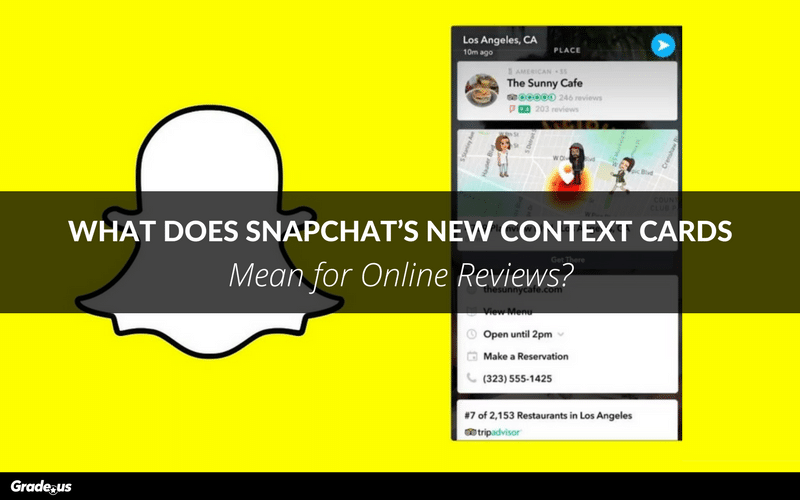It'll hurt or help your business.
Snapchat has just announced Context Cards. It's a feature that's available to advertisers. It's a huge advantage if you're ready to use it and an expensive headache if you're not. Context Cards will have a huge impact on your reviews.
Picture this.
You're shopping for a hotel. You're going on vacation, so you're looking for a premium experience. You want a hotel with great food, outstanding service - all the amenities a hotel should have.
You've narrowed your search down to two hotels in your target area.
The first hotel doesn't have much in the way of reviews. Could be a fantastic place to stay, or a nightmare. There's no customer feedback, so it's difficult to know what you're dealing with. Hmm... Maybe the second hotel will have more to work with.
You take a look.
The difference is night and day. They have pictures of everything. Hundreds of glowing reviews from happy customers just like you. They gush about the wonderful service, the atmosphere, the food.
Which hotel do you choose?
This is bad news if you're unprepared
If you're in this situation and your listing is filled with negative reviews (or worse no reviews) you have a problem.
Hotels are aware of the difference reviews make. They're sensitive to the feedback customers leave behind. If a new social or review site appears, most are working to generate positive reviews.
Other industries? Not so much.
With most other industries, the approach tends to be, take it or leave it. The attitude goes like this: "if customers write a review that's great. If they don't write a review, eh, no sweat off my back. If I have no reviews, no biggie."
You could have gotten away with this in the past.
Not anymore.
Those days are long gone. Snapchat’s huge millennial demographic means their users are focused on technology. This means they rely heavily on online reviews, especially within specific industries.
· Retail: As the retail apocalypse has shown, millennials are shifting their dollars away from bricks and mortar sellers to online retailers who cater to their values, wants and needs.
· Restaurants: When it comes to food, millennials are sophisticated foodies. They’re quick to critique businesses with less than ideal standards. They typically have very high expectations and they’re more than willing to cook at home when their expectations haven’t been met.
· Finance: Millennials have witnessed three major stock market crashes in their lifetime. They have an inherent distrust of all things financial. While they’re set to receive the greatest transfer of inherited wealth, they don’t have the spending power of their predecessors now.
· Services: Millennials are looking to partner with companies that make a difference in the world. They’re looking to make an impact, to achieve results that are significant and noteworthy. When it comes to your marketing, they expect your messages to be in line with their values.
Millennials are adults now and as customers, they expect to see your listings on the sites they use. If your profiles are incomplete or light on positive reviews they move on.
But why?
Why does this matter to customers so much?
The good news: reviews aren't really all that important, right?
Wrong.
Reviews are incredibly important on their own. Customers use reviews to confirm or defuse objections. They learn about what it's like to work with your company. It gives them a sense of what to expect (good or bad).
Reviews give you something more important.
Customers use reviews as a signaling tool. Customers use reviews to measure your value in the marketplace. The more positive reviews your company has the higher your company's social status.
Here's where things get interesting.
Customers use many factors, including reviews, to determine their own status/social worth. I admit it, this sounds a little bit silly.
But it's true. Here's how we know.

Customers use the Apple iPhone as a social comparison tool and status symbol. Almost immediately, people respond with, "well yeah, that's because it's Apple." But it's not just Apple. Whether we like it or not these abstract ideas - honor, trustworthiness, values, status - are a part of marketing.
These abstract ideas are things customers want from you.
Snapchat's Context Cards give customers intel
Snapchat's Context Cards give customers a simple way to find, assess and choose who they do business with. If you see a Snap from a particular place or business you can plan a trip or event around that Snap. Here's Snapchat's intro video.
Did you catch that?
Six seconds in and they've already displayed the reviews from a local business. Pretty neat huh?
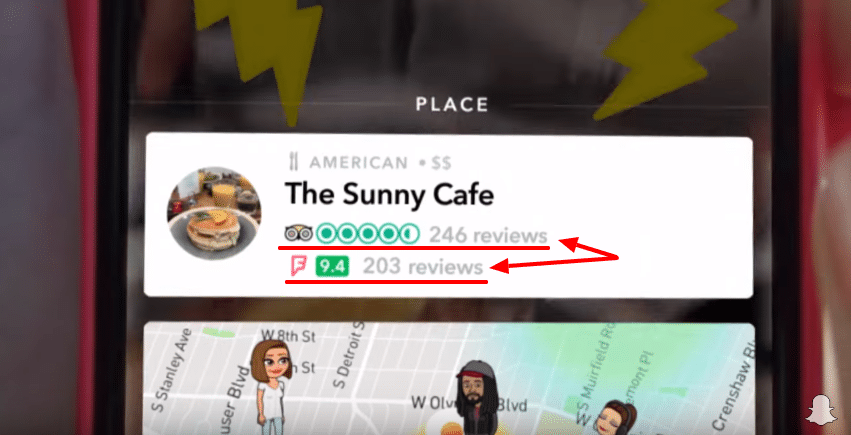
They're giving users more info on their snaps via third-party services like TripAdvisor, Foursquare, Michelin, goop, OpenTable, Resy and more.
What does this mean for you?
If your customers are using review sites, any of these really, you should be there. Why? Because these third-party sites are included in Snapchat's Context Cards. These third-party sites have done the hard work of collecting and organizing user-generated review content.
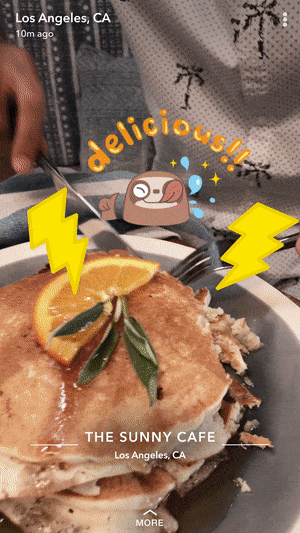
This is valuable to your customers because it helps them assess your business.
Your prospects won't make the decision you want...
If you're missing the data you need. Take a look at this TripAdvisor listing for a new restaurant.
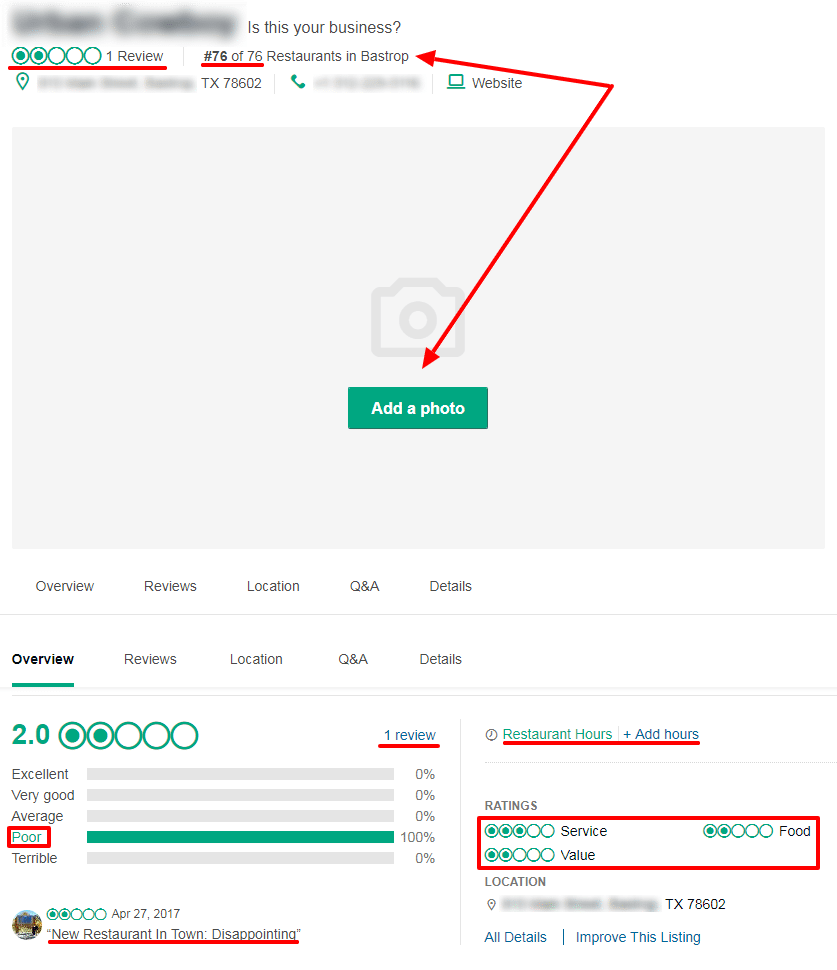
This is a new restaurant. They have zero photos, no hours listed and one (bad) review. Honestly, they're not off to a great start. Customers may be willing to give them a pass until they see when their negative review was posted.
It was posted on April 2017.
Now imagine Snapchat users decide to check out restaurants in their area. They do a search and this restaurant comes up.
No photos, no hours, no positive reviews.
Then they see a competing restaurant with lots of reviews. Beautiful photos of their food and their restaurant. Positive feedback from happy customers. Would you choose the first restaurant?
Most customers won't.
Which means this restaurant will lose business.
Losing customers is the best case scenario
This problem is a common one.
Businesses in this situation can recover if they claim and complete their online review profiles. They'd also need to attract positive reviews from customers consistently.
Losing customers is actually the best case scenario.
Ouch!
Here's what actually happens with the worst case scenario. Let's say you're running ads on Snapchat's platform. Your online review profile is incomplete, terrible or both.
The cost of your advertising has just gone up. Your ads won't perform as well, which most likely means you'll have to spend more money to attract a smaller amount of visitors.
Are you missing photos? Do you have lots of negative reviews and incomplete information? These easy-to-avoid mistakes sap your business of the cash it desperately needs to grow.
It also trains and conditions customers to reject you.
Showing your customers more ads reminds them of the fact that you're an unnecessary risk. From their point of view, it's pretty straightforward.
Why do business with you when there are so many wonderful alternatives?
This creates a cycle of rejection, making it more expensive and more difficult to attract the customers you need. It's a disaster in the making because customers don't care why you don't have what they need. They just know you're not a good fit.
You lose money and they move on.
What if you get it right? What if you're able to use Snapchat's Context Cards well? Customers begin looking for their next steps.
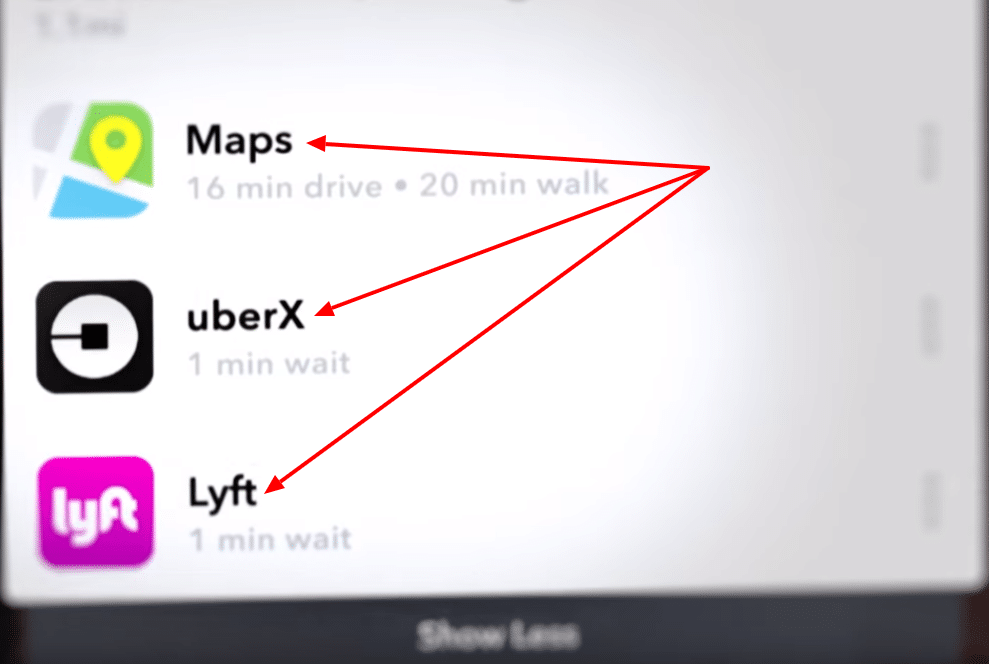
Snapchat Context Cards allows users to:
- Get directions to your business via Google Maps
- Request rides from ride-sharing services like Uber or Lyft
- Make a reservation or schedule an appointment
- Call your business
- View your menus
- Visit your website or a specific landing page
These Context Cards enable users to act on your ad immediately. What motivates them to act on the Snaps they see? The story, the reviews.
Here's why Context Cards are so powerful.
Social proof.
It's an implicit form of social proof. If your friends are eating breakfast at their favorite restaurant or attending a specific event, it's a form of social proof.
Remember how I mentioned social comparison and social status earlier? Snapchat uses this powerfully. See influencers in your social group doing things that display status?
You're far more likely to do what they do.
Why?
Social comparison theory. The vast majority of customers want to maintain their current social status. Many want to want to improve their social standing.
Snapchat encourages competition which, as it turns out, can be beneficial for your business. It's kinda gross, completely out of your control and still beneficial. But only if you work with your customers.
If you're not ready, this trend will only get worse
Reviews are an integral part of Snapchat's Context Cards. But Snapchat isn't the only provider embedding reviews in their ads. Waze, Yelp and other location ready services are already doing this.
There's no easy way out of this.
These changes leave you with two options. (1.) You can embrace the change. You can claim and complete your profiles. Under promise and over deliver then request reviews from happy customers. Or (2.) you can ignore these changes and accept the painful downsides.
The choice is yours.
It's only bad news if you're unprepared
Customers expect to see your listings on the sites they use. With Snapchat's Context Cards, they will. Have unclaimed or incomplete profiles? Your customers will move on. Have a profile filled with no reviews? Negative reviews? Customers will avoid you.
Your customers depend on reviews.
They use them as a signaling tool, a way to find the amazing companies they want to do business with. Want to show customers how amazing you are?
Start now.
Claim and complete your local and review profiles. Customers want you to paint a picture. They want to see the outcomes you can provide. Do what it takes and customers will find your picture is their reality.
About the Author
Andrew McDermott
Andrew McDermott is the co-founder of HooktoWin. He shows entrepreneurs how to attract and win new customers.

